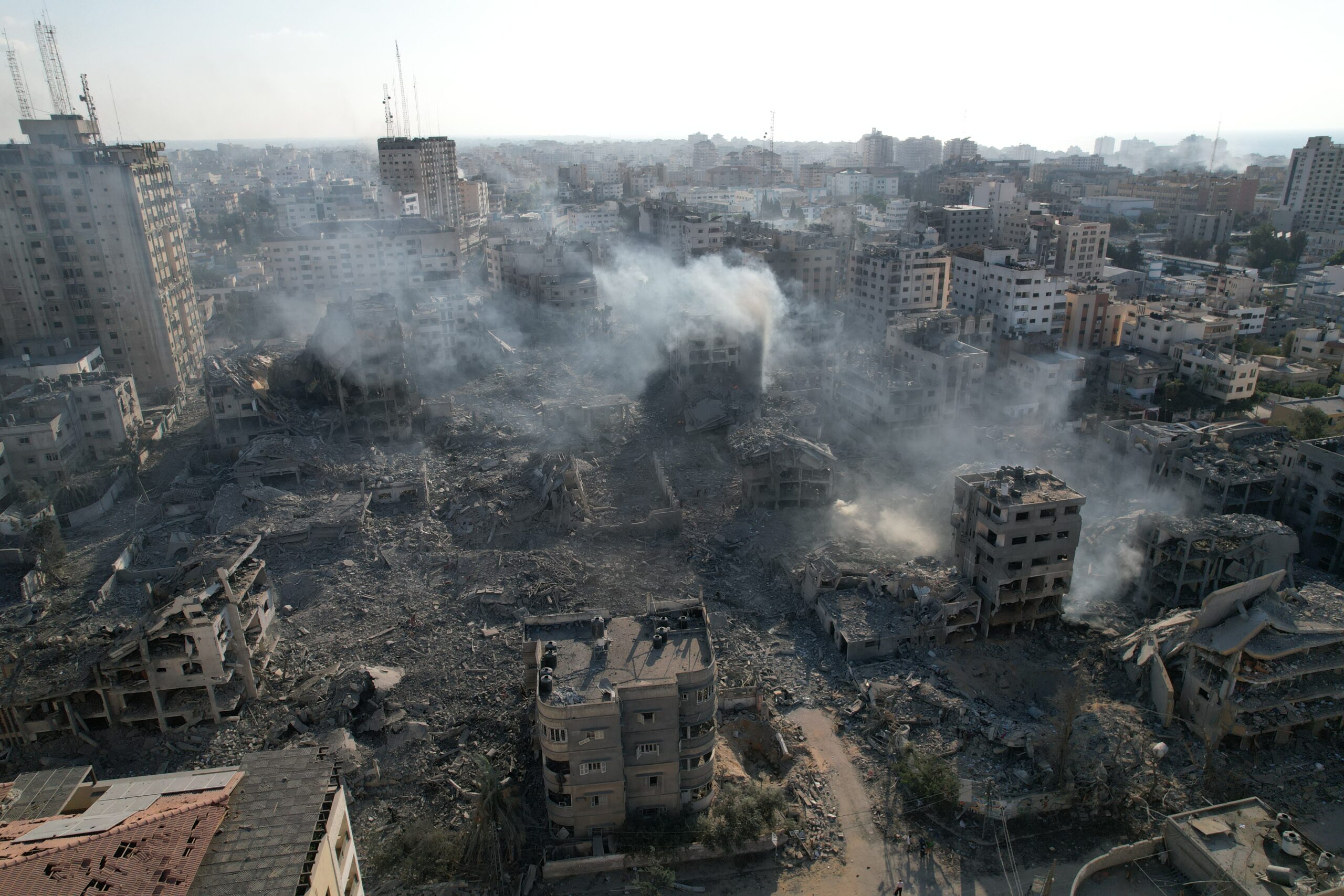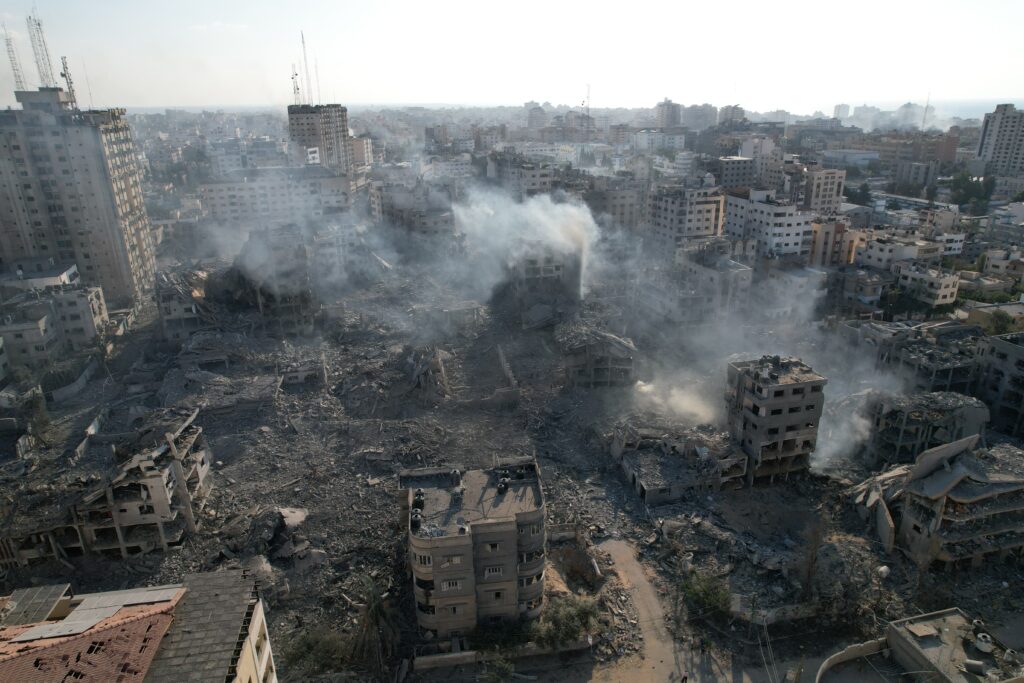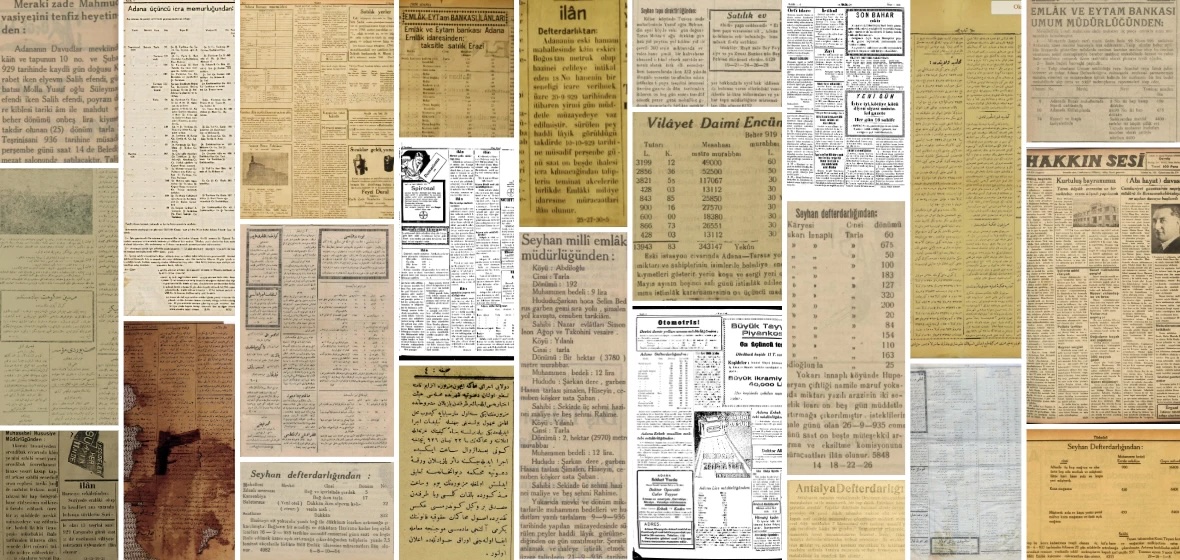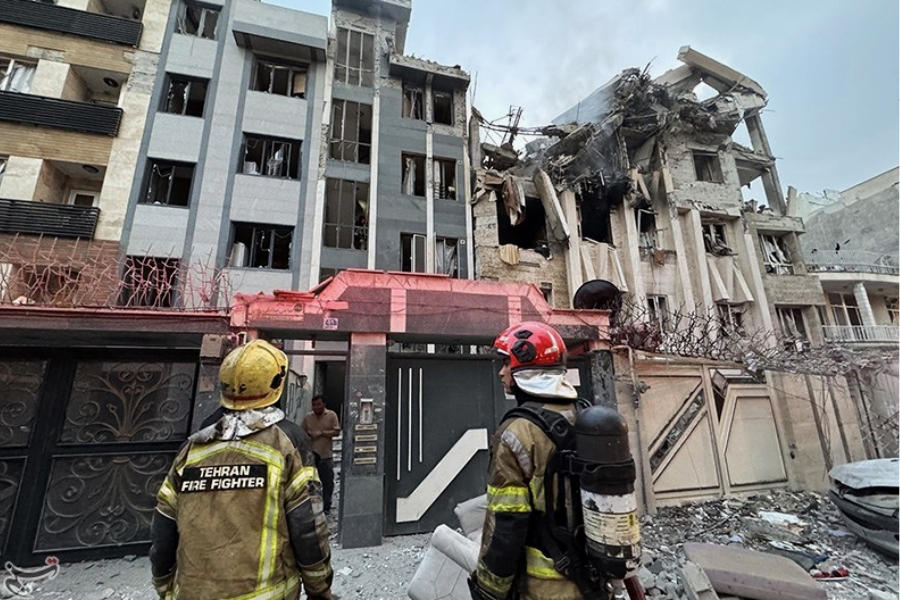How the military escalation in Gaza could impact the South Caucasus

On October 7, 2023, Palestinian Islamist militant group Hamas launched operation “Al-Aqsa Flood,” aiming to destroy the Israeli army positions near Gaza and capture as many soldiers as possible, in order to exchange them with the almost 7,000 Palestinians detained in Israeli prisons. The operation created a shockwave in Israeli society, killing more than 1,000 soldiers and civilians. As a result, Israelis started indiscriminately bombing Gaza, killing civilians and threatening ethnic cleansing through a land invasion. The danger that the escalation will turn into a regional conflict involving Iran and Hezbollah is high. Such a step would surely have devastating consequences for the region and a domino effect beyond the Middle East. If Israel, which is Azerbaijan’s military partner and Iran’s regional enemy, was involved in a war of attrition in Gaza or a regional escalation, it would become isolated from the events in the South Caucasus. Given the tense situation in the South Caucasus, it is important to relate these events to the wider regional picture and assess future scenarios. In this article, I will briefly analyze the military escalation in Gaza, the position of key regional actors and how the war may shape developments in the South Caucasus.

From Israel’s Security Failure to Regional Escalation
Lebanese journalist Hasan Illaik said that Hamas and Palestinian Islamic Jihad were taken by surprise when they stumbled on security vacuums and poorly guarded military sites where dozens of Israeli soldiers and officers slept. Intelligence analysts argued that this reflected Israel’s intelligence failure. It is remarkable that the operation was highly secretive and disciplined. Even when Hamas militias conducted military exercises two weeks ago, Israel’s intelligence assessment was that “Hamas is training for what it does not dare to do.” Even some fighters from Hamas were not informed of the operation until a few minutes before the exact time.
In the meantime, clashes broke out in south Lebanon between Israeli soldiers and armed groups. On October 9, Lebanon’s Hezbollah announced that three of its fighters were killed. It is yet unclear whether Hezbollah intends to directly join the war, as Hezbollah’s Executive Council Chief Hashem Safi al-Din said that the party will “not remain neutral in this battle.” This was repeated by Habib Fayad, a pro-Hezbollah regional expert, on Al Jadeed TV, who argued that the party would not remain neutral, just as it intervened in Syria in 2013 to prevent the collapse of Bashar al Assad, the backbone of the “axis of resistance.” If Hezbollah realizes that there is an existential threat against Hamas during the Israeli land operation, it will be forced to open a two-front war against Israel, pushing the American aircraft carrier near Israel to also intervene and sparking a regional war, Fayad argued. The Times of Israel, citing Hamas official Ali Barakeh from Beirut, also confirmed that Iran and Hezbollah would join only if Gaza is subjected to a “war of annihilation.”
Some intelligence sources claimed that this operation was planned by Iran and Hezbollah, and Hamas fighters received logistic training. The Wall Street Journal reported that Iran and Hezbollah plotted the attack on Israel, as Hamas officials met with Hezbollah and the Iranian Islamic Revolutionary Guard Corps in Beirut several weeks earlier. The Iranian side was represented by Ismail Qaani, the commander of the Quds Brigades of the Islamic Revolutionary Guard Corps (IRGC). Lebanese newspaper L’Orient Today mentioned that the “idea of infiltrating Israeli settlements had been brewing in the minds of Hezbollah leaders for years,” according to an anonymous source. Hezbollah Secretary-General Hassan Nasrallah has often considered sending fighters to northern Israel to capture settlements and kidnap Israeli soldiers.
During these trilateral meetings, officials reviewed the outcome of the Megiddo operation, when a Hezbollah fighter infiltrated northern Israel from Lebanon in March 2023. They allegedly drafted a plan to launch a cyberattack against Israeli ground and air defense systems and attacks by paratroopers and drones. More than 1,000 Hamas fighters would participate in this plan. Interestingly, this operation is very close to Hezbollah’s public military exercises in Aaramta, Lebanon, which also included motorcycles and undercover infiltration to overcome Israeli security barriers.
Regionally, the Arab League condemned the war and called for a cessation of hostilities. Turkey and Russia warned Israel against engaging in land invasion. Russia’s President Vladimir Putin even warned Israel that a ground invasion of Gaza would “seriously harm the relationship between our countries.” Iran openly supported Hamas and its Foreign Minister visited Beirut, Damascus and Doha for consultations. Meanwhile, the U.S. and some Western allies are concerned that Israel will lose its deterrence power against Iran if the war is prolonged. Many fear that Gaza will turn into another lengthy war like in Ukraine and consume the West’s arms storage. Moreover, U.S. weapons shipments to Israel will shift Western attention from Ukraine, which is also in need of Western weapons to fight Russia. If the violence in Gaza spreads to the West Bank and within Israel, a weakened Israel mired in a “civil war” would weaken the U.S. position in Syria and the Persian Gulf. This serves Russian interests, which may wage a counteroffensive to retake key areas in Eastern Ukraine. The escalation also served Turkey, as the Turkish army started bombing Kurdish-populated areas in northeastern Syria amid the distraction of the U.S.
Israeli PM Benjamin Netanyahu said that his response to the attack from Gaza “will change the Middle East,” arguing that the outcome of the war will change the balance of power in the region by destroying a key Iranian ally in Palestine. The Israeli Defense Forces (IDF) called for Palestinian civilians to evacuate Gaza to Egypt prior to Netanyahu’s plan to invade. Amid Israel’s preparation for land invasion, many military experts argue that this can turn into a long war, as Hamas has established a network of tunnels in Gaza and is prepared to engage in a guerrilla war against the IDF.
Impact on the South Caucasus
In early September 2023, the U.S. backed the Indian-Middle Eastern-European corridor (IMEEC) in an open challenge against China’s Belt and Road Initiative and Russia and Iran’s International North-South Transport Corridor. (Even though India is part of the INSTC, the U.S. is doing its best to detach New Delhi from this grand project connecting Russia to the Persian Gulf and Indian Ocean.) The IMEEC is more feasible compared to other economic corridors, as it passes via relatively stable countries such as the United Arab Emirates, Saudi Arabia, Jordan and Israel. However, instability in Israel will jeopardize the project. Russia and Iran have expressed silent concern over the project, as it bypasses them, while Turkey’s president announced during the G20 summit held in New Delhi that “there is no corridor without Turkey.” This is one of the key reasons why Russia is eyeing the opening of communication channels in the South Caucasus – not only to control the North-South but also the West-East routes (via Syunik) connecting Europe to China. The developments in Gaza, Iran’s distraction and a possible regional war may push the necessity for the realization of the “Zangezur Corridor” through Syunik.
Meanwhile, the prolongation of war in Gaza could create new challenges or opportunities in the South Caucasus. If Israel is sidelined from the South Caucasus due to its internal distraction, this may push Azerbaijan to be more dependent on Russia, Turkey and Iran. It may also be restrained from launching a new escalation against Armenia, as new arms supplies from Tel Aviv to Baku would be halted to arm Israel’s war.
Yet Azerbaijan may take advantage of the global distraction with the escalation in Gaza and Iran’s involvement in this war to launch a limited incursion in the bordering territories of Armenia, under the pretext of capturing the so-called Soviet-era enclaves. Two weeks ago, Azerbaijan’s President Ilham Aliyev, during his phone conversation with the head of the European Council Charles Michel, said that “eight villages of Azerbaijan are still under occupation of Armenia,” stressing the need to “liberate” them. This was refuted by Armenia’s Prime Minister Nikol Pashinyan, who in an interview argued that there should be a trade-off between the Armenian and Azerbaijani “enclaves” to keep the status quo as it is. However, given Aliyev’s anti-Armenian rhetoric and his insistence on establishing a corridor through Syunik, he may engage in another escalation. Such a warning was even stated by U.S. Secretary of State Antony Blinken, as he warned that “Azerbaijan may invade Armenia in the coming weeks” (though the U.S. State Department later denied this).










Let’s not forget that Israel created Hamas with the specific aim of undermining Yasser Arafat, and that in 2009, Benjamin Netanyahu decided to strengthen Hamas for political gain. As to the claim that Hamas wants to eliminate Israel, Noam Chomsky noted that the people who wrote Hamas’s charter have no power anymore, and the younger generation has expressed willingness to negotiate (meanwhile, the Likud Party’s manifesto calls for Israel to be an exclusively Jewish state).
It’s easy to blame Israel for all this, but the fact remains that the US gives Israel $3 billion per year. Biden could simply cut off aid to Israel and it would have no choice but to withdraw its troops from the occupied territories, much like how Clinton cut off aid to Indonesia and it withdrew its troops from East Timor the next day.
Every statement you make is false. Israel did not create Hamas, the Muslim Brotherhood did. The purpose of Hamas as stated in its 1988 charter is to destroy Israel and murder its inhabitants. You can see by the recent actions of Hamas in Gaza how much that original intent has changed. As to the money/year Israel gets from the USA, it’s well worth the money for the security/military/intelligence cooperation the USA gets in the heart of the Muslim world. What Does the annual $1.3 Billion in military assistance to Egypt buy American taxpayers?
Good analysis Yeghia. I enjoy reading your articles. It would be very informative if you can expand in a separate article the proposed International corridors; their regional geopolitical importance and specially The India -Iran-Armenia-Georgia-Europe, which still bypasses Russia.
It would be good if Armenia can develop links with Georgia and Iran disregarding Russia. Iran to Asia and the Indian Ocean and Georgia to the black sea and Europe. Nevertheless wars and shenanigans will play their part along with economics.
Gary, the first three sentences of this article by Yeghia Tashjian are deliberate lies. These statements could not have been made out of ignorance. The aim of “Al-Aqsa Flood” was not to capture as many Israeli soldiers as possible to trade for convicted criminals in Israeli prisons. When the terrorists came upon soldiers sleeping in barracks, early that morning, they murdered them in their beds. Capturing soldiers was incidental. The main aim was to murder noncombatants and/or take hostages from the noncombatant population.
As to the “almost 7,000 Palestinians detained in Israeli prisons” how many of them are Arab Israelis who are convicted of crimes such as burglary, honor killing, revenge killing, spousal abuse, terrorists with blood on their hands, etc. A Google search on “how many arabs in israeli prisons” gives the result that Israel holds about 4,500 Palestinian prisoners. The State of Texas hold 133,772 prisoners. Israel has 1.6 million Palestinian Arab citizens so maybe some of them belong in prison.
As to “indiscriminately bombing Gaza”, how would that stop the missiles? Israeli Defense Minister Yoav Gallant said: “Our planes reach each and every point, this aircraft has many missions – but each missile has an address. We will reach each and every Hamas member” https://www.israelnationalnews.com/news/378663
Regarding “threatening ethnic cleansing” in Gaza: Which minority is threatened to be “cleansed” now that virtually all of the Christian Arabs in Gaza have left Gaza due to religious persecution.